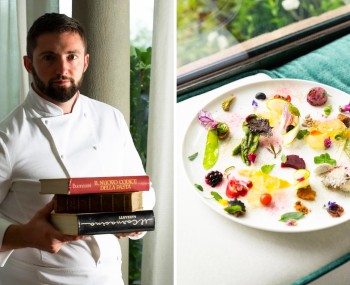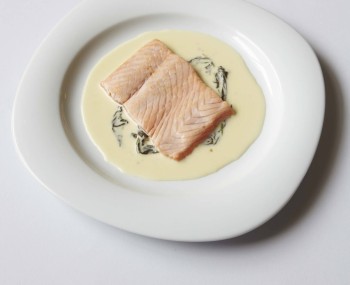The renowned French pastry chef debunks clichés about sexism and harsh working conditions in kitchens: "Personally, I've had more issues when my boss was a woman. But today, things have greatly improved—chefs have learned to manage and communicate differently."
Cover photo: Iannis G agence
The pastry chef
Awarded as the world's best pastry chef by The World's 50 Best Restaurants in 2019 and pastry chef of the year by Gault & Millau in 2020, Jessica Prealpato is a shining star of the "Ducasse generation," a group of talents the renowned chef continues to launch into the gastronomic stratosphere. She started her career as a cook but later chose to specialize in pastry. Her breakthrough came at the Plaza Athénée, where she became the pastry chef in 2015, under the mentorship of Alain Ducasse. Their collaboration continues, with Prealpato undertaking missions on his behalf and contributing to the development of commercial concepts.
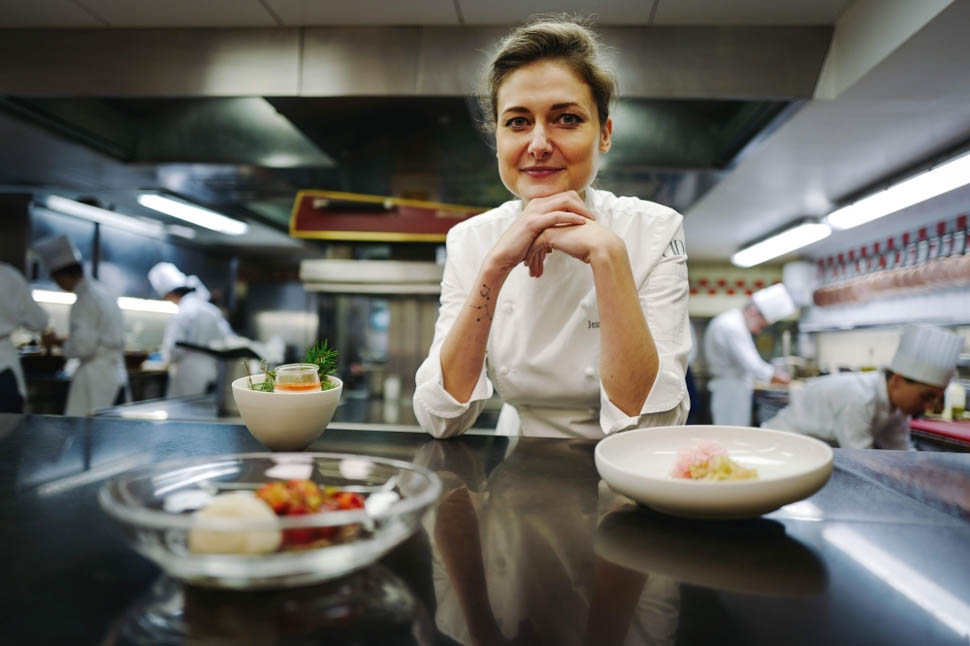
For two years, Jessica also oversaw the afternoon tea at the Carlton Tower Jumeirah, considered the best in London within the industry. This English institution pairs tea with sweet and savory treats. Today, she works at the Hotel San Régis in Paris and engages in private projects where she remains faithful to the concept of "desseralité," a blend of dessert and naturalité, avoiding the use of refined sugars and using only the best ingredients without tricks or deceptions.
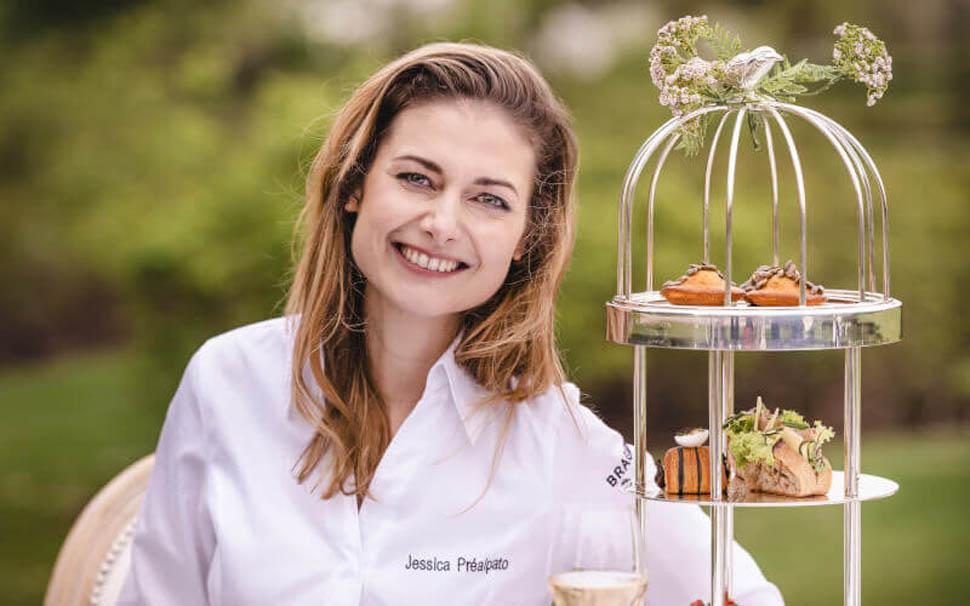
Regarding the role of women in the kitchen, her interview with Paris Match raises eyebrows: “To be honest, I found it more challenging to work with female chefs and sous chefs than with male superiors. I received much more criticism from them. I’ve always done my makeup and hair each morning, but it was usually the women who would comment: ‘Are you in a fashion show?’ or ‘Did it take you three hours to do your makeup this morning?’ This is undoubtedly a male-dominated industry, but I don't see the problem with taking care of your appearance. For me, it was part of my self-care, especially since I often finished desserts in front of customers. I’m feminine and have never had issues showing it, but some women strangely found it bothersome.”
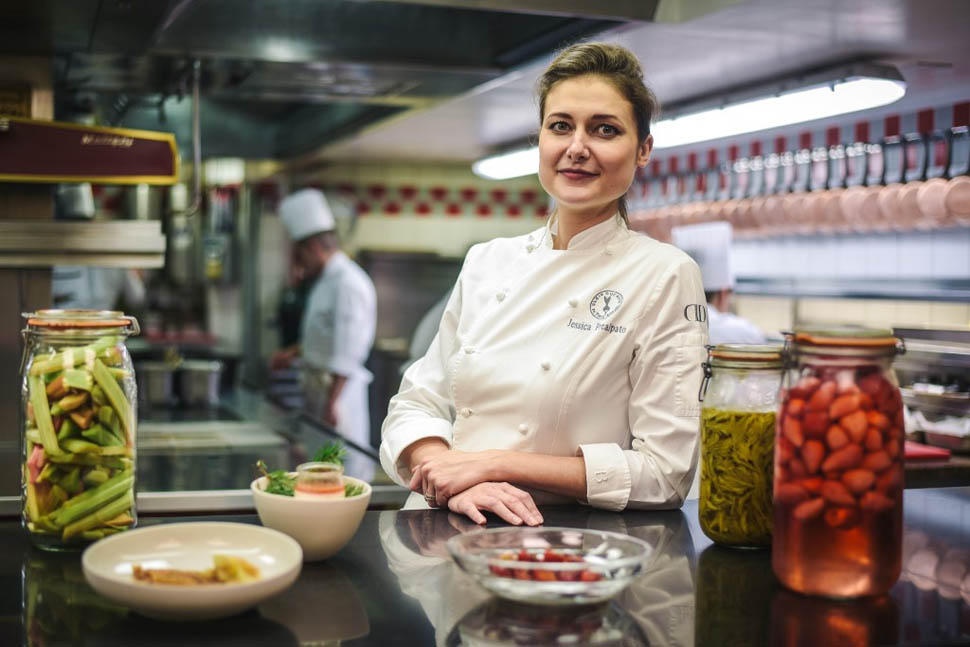
"I was lucky to have my daughter Lou when I was already a chef—the team was fantastic, and the sous-chef managed the evening service. They adjusted to my not always being there, and it worked wonderfully. But I can't fathom why there are still difficulties, because if a child gets sick, it's the mother who has to pick them up from school and care for them for two days. It's hard to manage all the mental load of being a woman and a mother unless you have a very high salary that allows you to afford a housekeeper, a nanny, and all the rest. It cost me a divorce." Prealpato openly admits her shortcomings: she's made puff pastry only three times in her life, but nobody's perfect—the important thing is to surround yourself with the right people. As for the sacrifices made by those who choose to work in the restaurant industry, she debunks more clichés: "In my opinion, things have gotten much better. I think there was only one restaurant where it was mentally tough to handle. But at the Plaza Athénée, we had music in the kitchen and joked around all day...
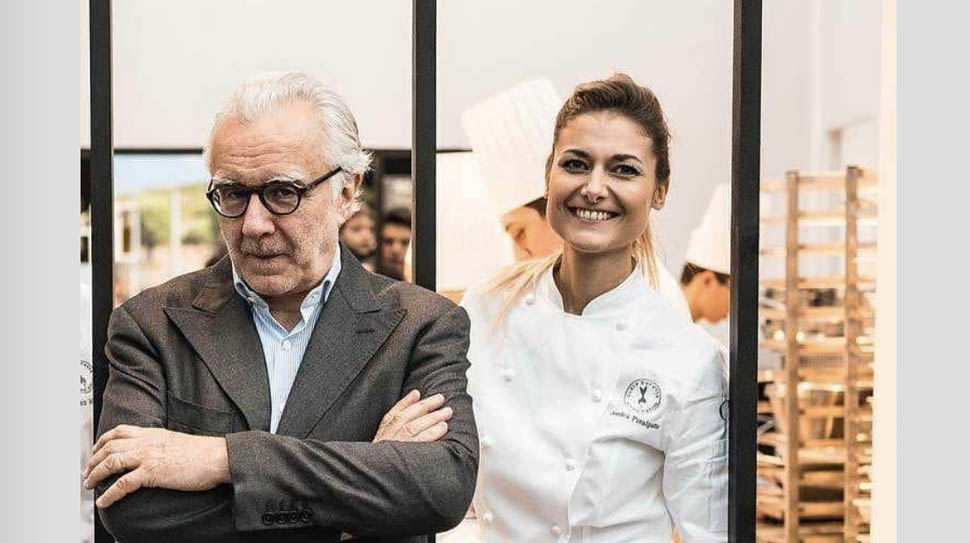
I never felt the pressure of a three-star, except during service when all the dishes had to come out at once. In the restaurants I've been through, the chefs had learned to be cooler, less difficult, to manage and communicate differently." And to the young women entering the profession, she offers her advice: “Go all in, without changing who you are—embrace your imperfections, strengths, and flaws. The key is to find your own identity, because today there are outstanding pastry chefs all over the world. My identity is rooted in naturalité, which inspires me every day—it's the greatest gift Monsieur Ducasse has given me. I tell young people that everyone has the potential to create their own unique style and build their own universe. To do that, you need to learn about yourself, so you can share a personal experience with others.”


